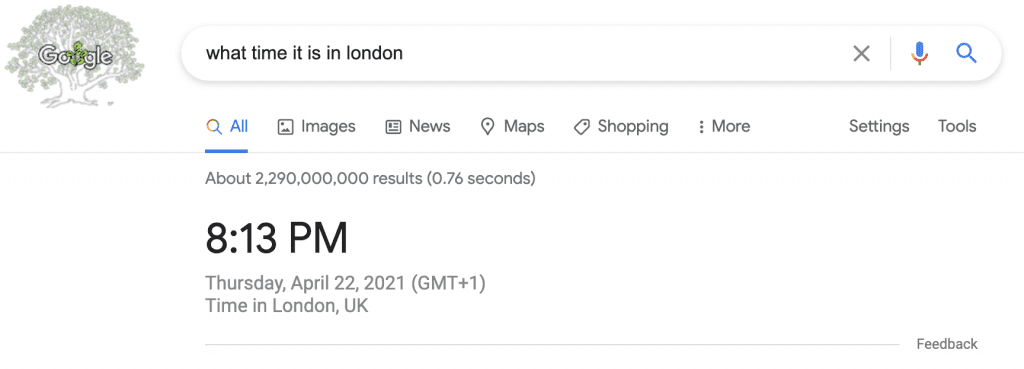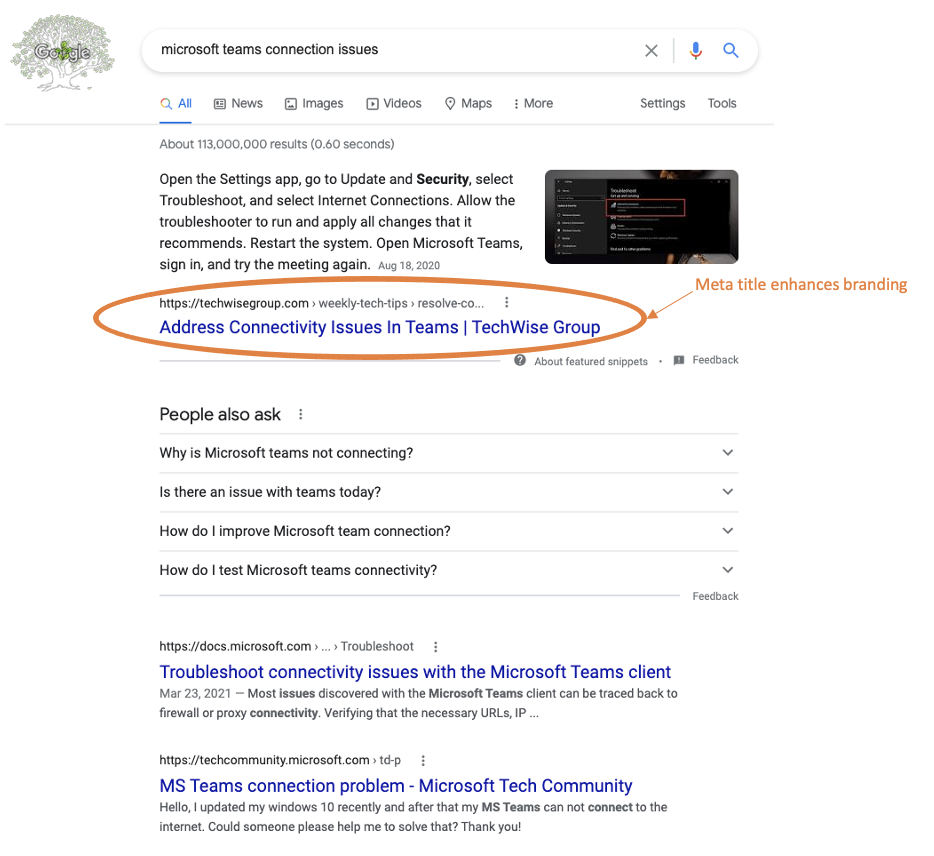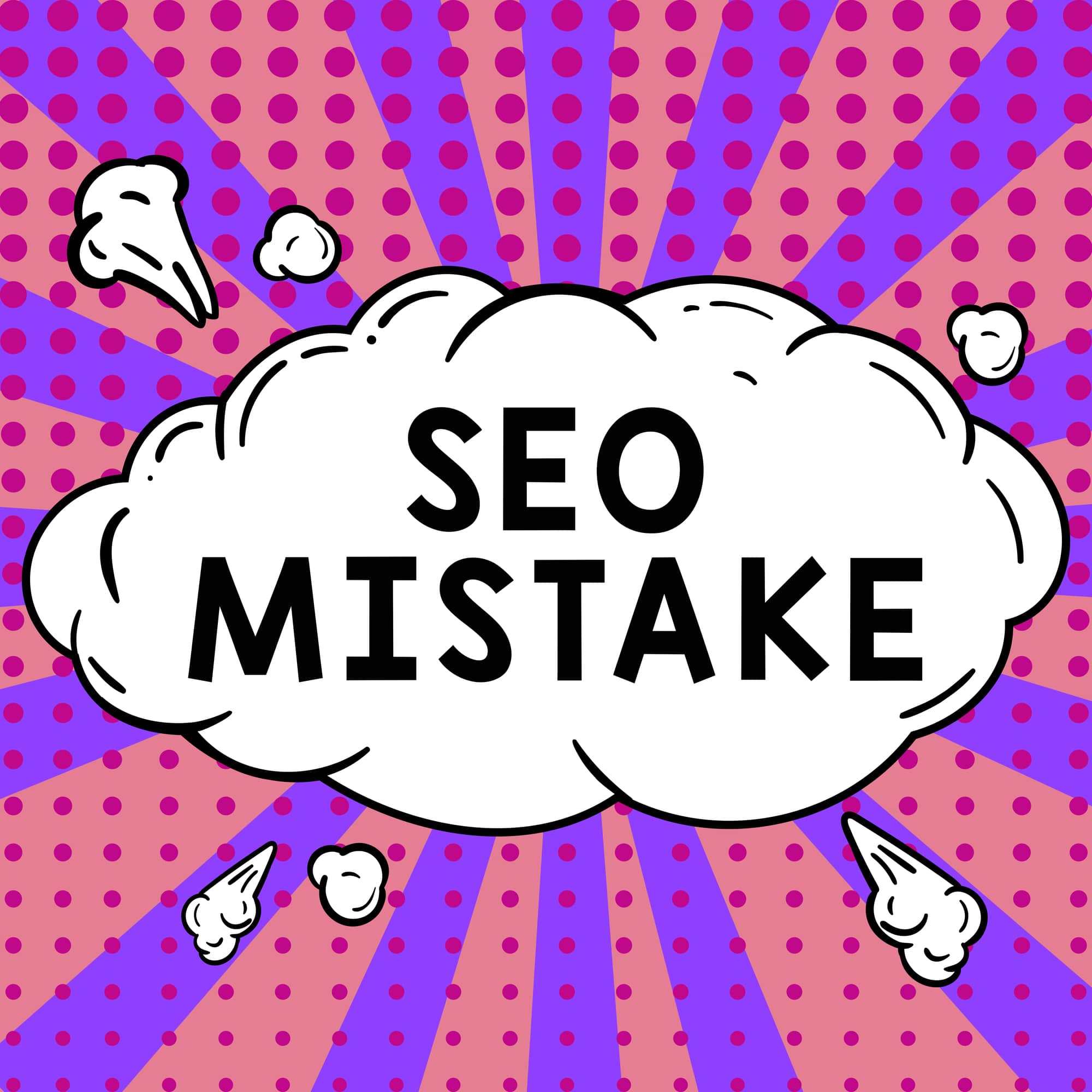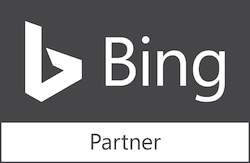In a recent article, we looked at the debate among SEO industry experts regarding zero-click searches – online queries (such as the one shown below) in which the searcher’s intent is satisfied without having to click on a search result.

It’s easy to understand why many digital marketers are not fans of zero-click searches – without the click, CTR drops and this could appear as a reduction in performance to a client. To add to this frustration, there is evidence that zero-click searches are growing. A SparkToro study claims that zero-click searches had increased from 50% in June 2019 to nearly 65% by the end of 2020.
Our previous article offers several suggestions for additional reporting metrics that may help tell a more complete story for an anxious client. But the question remains: If zero-click searches are growing, is there a benefit in trying to rank for them and is that even possible? Our answers are yes and yes!
First of all, zero-click searches drive a tremendous amount of visibility. Ahrefs recent study of 2 million featured snippets revealed that a first position organic result gets 26% of clicks, but a “position zero” featured snippet gets 8.6% of clicks and the organic result directly below it gets 19.6% of clicks. 26% vs. 8.6% is a big differential, so it stands to reason that there is a high level of zero-click results for that featured snippet (searchers who found what they needed without clicking).
Here are two important ways that organizations can benefit from zero-click searches:
- Increased overall conversions (this includes non-digital conversions). For example, a zero-click search that returns a company’s Google Business listing may result in an offline phone call or a visit to a brick-and-mortar location.
- Enhanced branding. With or without a click, the top position for a particular keyword or search query gets the most impressions. That additional visibility for an organization’s URL can introduce a brand to a new audience, improve brand recognition and help establish authority over time.
Not surprisingly, Google agrees that zero-click searches are beneficial. Here is an excerpt from Danny Sullivan’s rebuttal to the zero-click debate:
“Google Search sends billions of clicks to websites every day, and we’ve sent more traffic to the open web every year since Google was first created. And beyond just traffic, we also connect people with businesses in a wide variety of ways through Search, such as enabling a phone call to a business.“
Here are some suggestions to help your company win on zero-click searches:
- Location-based queries (e.g. “electrician near me”, “best Baltimore electrician”). Google recently reported that 46% of searches are local in nature. Ensure your Google Business listing is claimed and optimized. Ensure business hours are up to date, provide details about specific services your company offers, post regularly and encourage reviews from satisfied customers. Add schema mark-up to your site.
- Database queries (e.g. searches relating to currency conversion, time zones – like the example at the top of this article, dates, names or ages of events, people and things). This data is often pulled from a Google Knowledge Panel, so if you or others within your organization have a personal knowledge panel ensure it is up to date. Your company’s Google Business listing is also a type of Knowledge Panel, so ensure that is up-to-date and optimized, as well.
- Informational queries (e.g. “what is…”, “how do…”, “definition of”). Craft the most succinct, helpful response to the query. Below is an example from one of our clients. By providing a very clear, concise answer to a Teams-related query, the company secured a zero-click search ahead of both the official Microsoft site and Microsoft forum.

Don’t lose sight of the fact that zero-click searches also represent a tremendous opportunity to enhance your brand. Not only do they drive a significant number of impressions, but there is evidence that the additional visibility may be lasting. The Aherfs study found that featured snippets, in particular, had strong staying power and often were not updated for several months. Similar to the example shown above, ensure your company name appears prominently in the meta title of each page on your site.
Try not to get too caught up in the numbers. Create helpful content. Remain relevant. Stay true to your brand. If you’re interested in developing a digital marketing strategy for your company’s individual goals, contact us for a complimentary consultation. Call (443) 475-0787.







